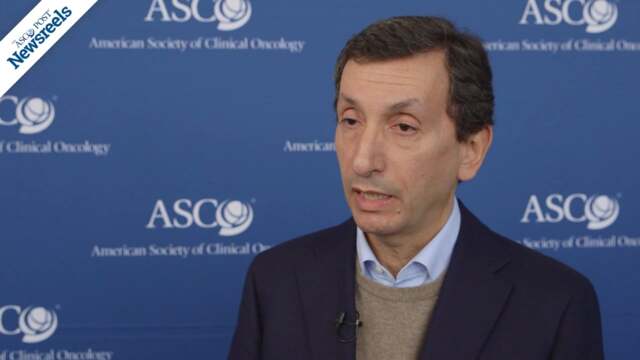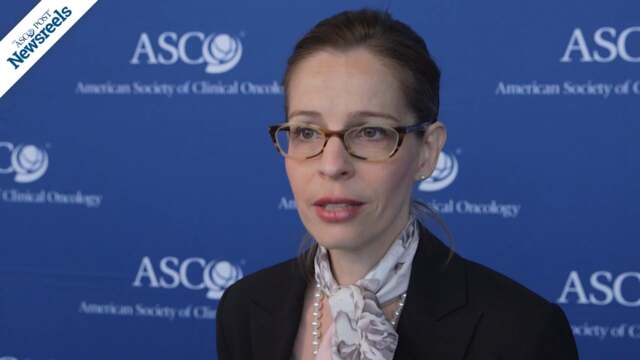Eric Roeland, MD, and Timothy E. Quill, MD, on the Debate Over Physician-Assisted Death
2016 ASCO Annual Meeting
Eric Roeland, MD, of the University of California, San Diego, and Timothy E. Quill, MD, of the University of Rochester Medical Center, discuss the debate on whether physician-assisted death should be a legally available option at the end of life when neither palliative nor hospice care is satisfactory.
Lee S. Schwartzberg, MD, of The West Clinic, reports on progress of the now year-old ACCC initiative to speed adoption of immunotherapeutics in community practices.
Michele Cavo, MD, of the Seràgnoli Institute of Hematology, Bologna University School of Medicine, discusses results from this phase III study of upfront autologous stem cell transplantation vs novel agent-based therapy for multiple myeloma (Abstract 8000). To see the Italian version of this interview, please click here.
Celestia S. Higano, MD, of the University of Washington, and Chris Parker, MD, of the Royal Marsden Hospital, discuss findings from this confirmatory study evaluating the accuracy of MRI and TRUS biopsy in men with an elevated PSA (Abstract 5000).
Sagar Lonial, MD, of Emory University School of Medicine, and Paul G. Richardson, MD, of the Dana-Farber Cancer Institute, discuss the top presentations on multiple myeloma delivered at this year’s meeting.
Julie Lemieux, MD, of Centre Hospitalier Universitaire de Québec, discusses in French patient-reported outcomes from a study extending adjuvant letrozole for 5 years after completing an initial 5 years of aromatase inhibitor therapy alone or preceded by tamoxifen (Abstract LBA506).

To see the English language version of this video, please
click here.





